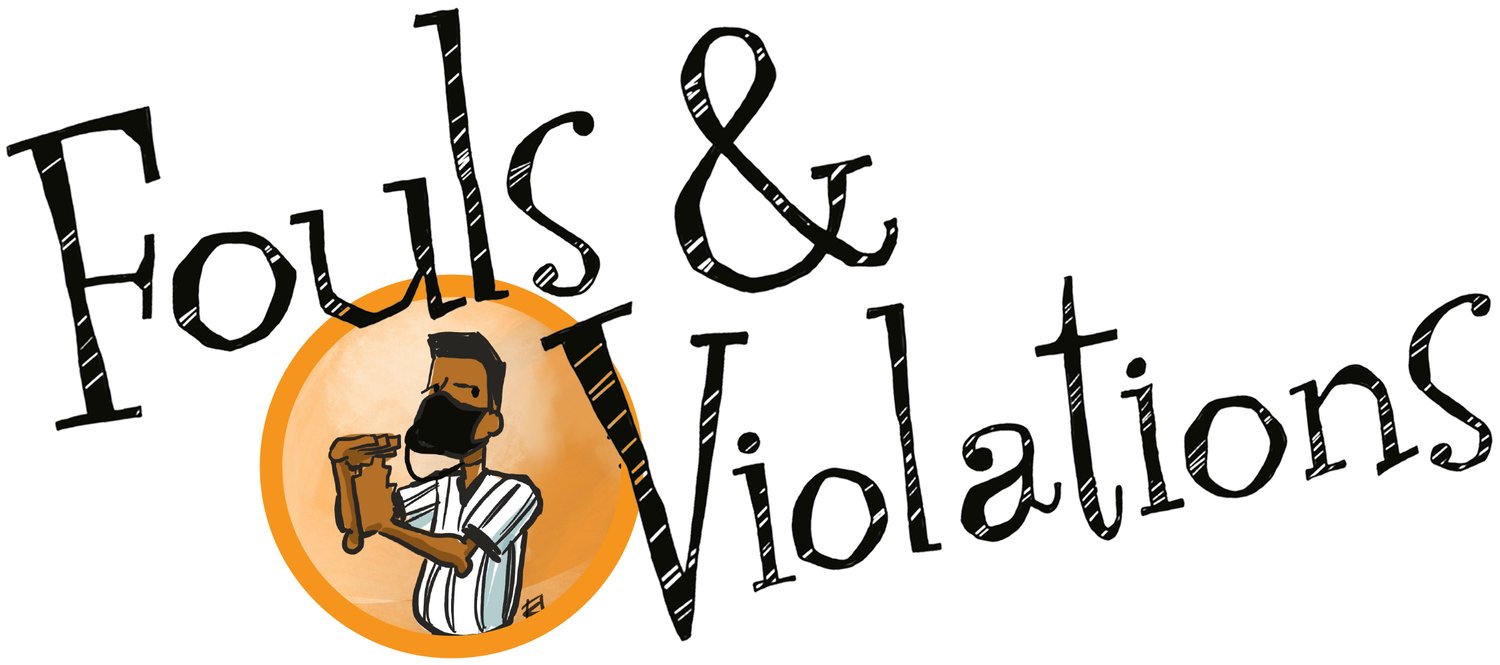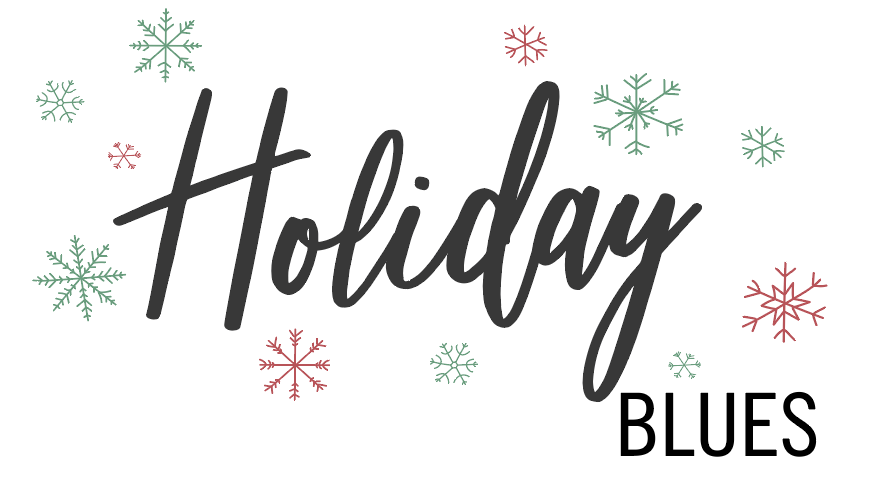Holiday Blues
By Asha Pearl Sparrock
Pumpkin spice lattes are taking a back seat until next year while gingerbread macchiatos begin to creep into our coffee shops. Comfy sweaters are a little less comfy when you need 3 layers to stay warm. “The most wonderful time of the year” is a little less wonderful when work doesn’t seem to let up and family obligations become more work than vacation. Though this time of year is saturated with cheer and togetherness, there’s a less acknowledged side. While some families are able to gather and enjoy the height of football and basketball season, there’s those who are entirely entangled in the demanding nature of making those games possible. Coaches, officials, athletic trainers, and players are all taking time away from their loved ones to fulfill their duties. Like many contracts signed in North American occupations, we’ve all checked “yes” to our willingness to work weekends and holidays. However, this doesn’t exempt us from feeling the holiday blues.According to an article from Mayoclinic.org, seasonal affective disorder (SAD) is a type of depression related to changes in seasons. Also dubbed “seasonal depression,” this reaches an all-time high during the winter months. The pressure of food shopping, finding holiday presents, balancing time for family and work is all the more daunting while pushing through an internal battle with our minds. The first step to facing these challenges head on is recognition. Us, as individuals, need to recognize our limits. Burning ourselves out is not a flex. Though we can’t control how others feel about our boundaries, we can continue to make them to accommodate our mental health. If situations arise where we cannot expand our mental bandwidth, there needs to be time taken out for recharging. While there isn’t much free time allotted to officials during their busiest seasons, there’s still the liberty of setting stipulations for time off. Taking the time to track your mood and find trends becomes a form of mindfulness that allows growth in both the present moment and the future. If you realize you’re four games deep in less than a week and you feel your energy beginning to decline, there’s the possibility that four games is your limit before your performance begins to take a hit.  Guilt is an emotion that often warps reality and stops us from thinking rationally. In the event of the decline of our mental health begins to affect our physical health, the guilt of leaving your colleagues short often forces us to neglect our overall health and work ourselves sick. Though often self-inflicted, guilt often comes from our supervisors and managers. A half-hearted “feel better” over the phone isn’t a comfort from our supervisor when we’ve finally convinced ourselves that it’s for the best to take the day. Guilt also gets thrown at us from our families. Though the saying goes “blood is thicker than water”, a shot of vodka is the only thing that gets us through some of these family events. It often feels like a second or third job making appearances at family gatherings during the holidays. Aunt Mary and Uncle George are having a fried turkey at their house but Cousin Bill is making a roasted ham. But Grandma Vivian and Grandpa Eddie would be devastated if they didn’t get to see you on Thanksgiving. How do you tell all of these people you just want to spend the day alone with a plate of chinese takeout without someone getting offended? Next thing you know, the Christmas party at your parent’s house is all the cousins and uncles and aunties asking why you made grandma and grandpa cry. As adults, as humans, and as growing individuals, we’re going to be put in uncomfortable spaces. The limit does not exist as to how often we’ll be working through the coldness in the air to the changing and eventual falling of leaves. Work and family will always be relevant in our lives. While there are always obligations to other forces, first and foremost, our obligations need to be set to ourselves. If setting the boundary for how often you allow yourself to interact with family and friends means you lose some of them, that means it was only a matter of time. If the process is sped up because you decided to put your wellness before someone else’s, then so be it. When it comes to our day jobs and careers, we do our best and listen to our bodies. We stay honest and open about the state of our minds and bodies as a preface to uphold our boundaries. The changing of seasons is inevitable. As Lauryn Hill once said, “After winter must come spring.” Though the cool climate adds a different element to the responsibility of family and work, the aspiration of warmer calmer days is always on the horizon. Continue to listen to your body, set boundaries, and know that your wellness is important.
Guilt is an emotion that often warps reality and stops us from thinking rationally. In the event of the decline of our mental health begins to affect our physical health, the guilt of leaving your colleagues short often forces us to neglect our overall health and work ourselves sick. Though often self-inflicted, guilt often comes from our supervisors and managers. A half-hearted “feel better” over the phone isn’t a comfort from our supervisor when we’ve finally convinced ourselves that it’s for the best to take the day. Guilt also gets thrown at us from our families. Though the saying goes “blood is thicker than water”, a shot of vodka is the only thing that gets us through some of these family events. It often feels like a second or third job making appearances at family gatherings during the holidays. Aunt Mary and Uncle George are having a fried turkey at their house but Cousin Bill is making a roasted ham. But Grandma Vivian and Grandpa Eddie would be devastated if they didn’t get to see you on Thanksgiving. How do you tell all of these people you just want to spend the day alone with a plate of chinese takeout without someone getting offended? Next thing you know, the Christmas party at your parent’s house is all the cousins and uncles and aunties asking why you made grandma and grandpa cry. As adults, as humans, and as growing individuals, we’re going to be put in uncomfortable spaces. The limit does not exist as to how often we’ll be working through the coldness in the air to the changing and eventual falling of leaves. Work and family will always be relevant in our lives. While there are always obligations to other forces, first and foremost, our obligations need to be set to ourselves. If setting the boundary for how often you allow yourself to interact with family and friends means you lose some of them, that means it was only a matter of time. If the process is sped up because you decided to put your wellness before someone else’s, then so be it. When it comes to our day jobs and careers, we do our best and listen to our bodies. We stay honest and open about the state of our minds and bodies as a preface to uphold our boundaries. The changing of seasons is inevitable. As Lauryn Hill once said, “After winter must come spring.” Though the cool climate adds a different element to the responsibility of family and work, the aspiration of warmer calmer days is always on the horizon. Continue to listen to your body, set boundaries, and know that your wellness is important.


